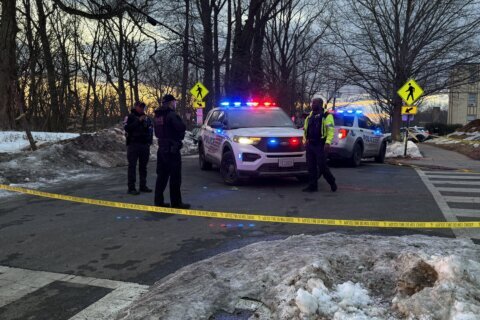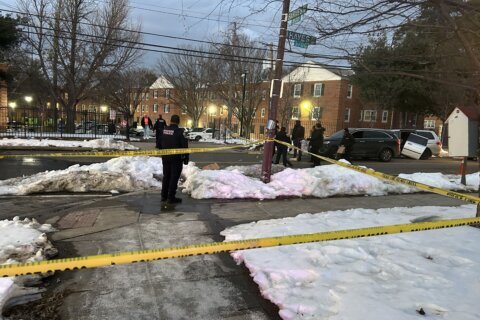When the COVID-19 vaccines started becoming readily available, several cities around the country, including D.C., rolled out indoor vaccination mandates.
These required restaurants to check for a customer’s proof of vaccination before seating them inside, and they required some people to get a vaccine to keep their job.
A new study examines the effectiveness of the mandates.
The study — conducted by researchers at three universities, including George Mason University’s Mercatus Center — looked at the impact indoor mandates had in cities that imposed them, including D.C., New York, Philadelphia and Los Angeles.
“Their intended outcomes were to raise vaccination rates, for people to get more vaccines; and consequently, the expectation was that COVID cases and deaths would go down,” noted Vitor Melo, a postdoctoral fellow at the Mercatus Center.
As compared to cities that didn’t implement mandates, Melo said his study found “there’s not much to show for it.”
“COVID cases were not affected, COVID deaths were not affected, and really, there’s no evidence that people got more vaccinated because of these mandates,” Melo said.
While admitting the mandates had an impact on people who wouldn’t get vaccinated, Melo added “there really doesn’t seem much to show for it.”
A spokesperson for the D.C. Department of Health did not respond to a request for comment.
The paper makes no judgments on whether someone should or should not get a vaccine, raises no questions about a vaccine’s effectiveness, and doesn’t try to argue whether someone should get one or not.
It only looked at the impact of the citywide mandates put in place in some of the biggest cities around the country.
So, why didn’t they seem to work?
“There were a lot of cities that were implementing this, but the cost of evading to most people wasn’t extremely high,” Melo said. “Somebody in D.C. could just go and take the Metro into Arlington, or somewhere else nearby, and be able to do all the things you should be able to do in D.C. if it wasn’t for the mandate.
It did impose a cost on people but really it wasn’t sufficient, “for people who were skeptical or resistant of the vaccine to do something they didn’t want to do,” Melo said.
Melo said other studies that have been conducted that looked at national indoor vaccination mandates put in place, for instance, in France.
“There, they do find that it increased vaccination rates,” Melo said. “At a national level, the dynamics of this is much different, right? In the United States, somebody could just leave New York City, leave D.C., and go to a nearby place and get all the services they would like to get. But if something is implemented at the national level, it’s a completely different story.”
“I guess if you make life difficult enough for people, they’re more likely to do what you want them to do,” Melo said. “But in the United States, at the city level, what they did, did not seem to work.”








